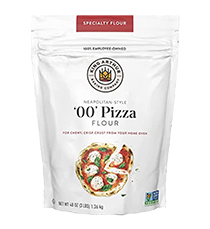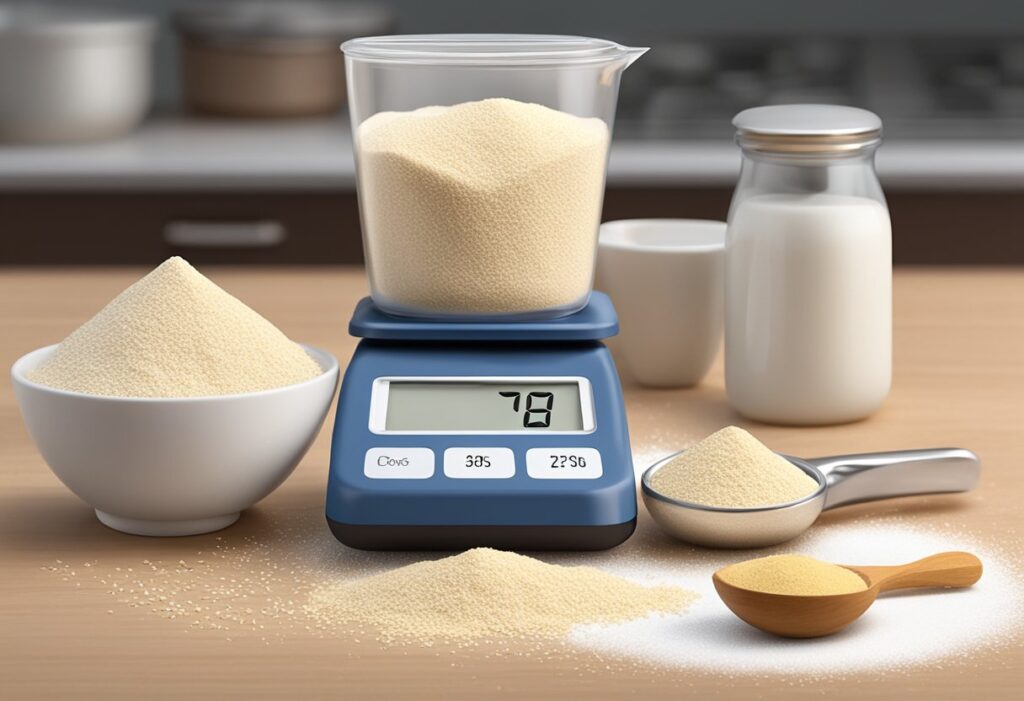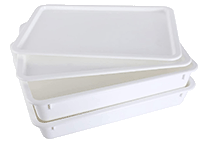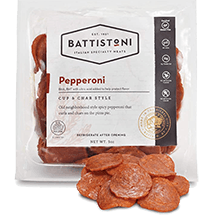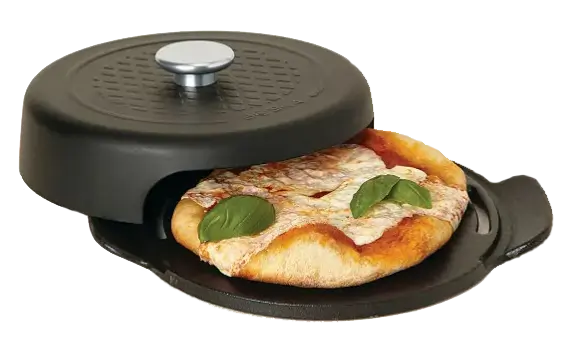If you are like us, you probably have your favorite pizza dough recipe down and know exactly how much pizza that makes. Usually, when we make homemade pizza, it’s for a small group of family and friends. We know exactly how much dough, sauce, and toppings to use. But when we need more, we use pizza calculators.
Table of Contents

When it’s time to make a large batch of pizzas, it can get a little confusing doubling, tripling, and even quadrupling the batch of pizza dough.
Luckily, there is a great solution to this problem, and that solution is a pizza calculator. But not all pizza dough calculations are the same, so we have compiled the best pizza calculators for your homemade pizza needs.
What are Pizza Calculators, anyways?
A pizza calculator is an online calculator that helps you determine how much dough you will need for X quantities of pizza. They are very helpful when you are making a lot of pizzas for a party, graduation, barbecue, school bake sale, or whenever you need to make a lot of pizza.
How to Use a Pizza Calculator

Some pizza calculators are pretty basic; you simply put in the pizza style, the number of pizzas, the size of pizzas, the type of yeast, and the amount of water. Some are more complex and include the info above and also the brand of flour, and the room temperature.
Some include the amount of salt and thickness of the crust, including Chicago deep-dish, focaccia, and thin crust. And others focus on dough hydration. Basically, how wet the dough is affects how the dough will stretch and bake.
A quick word about dough hydration, dough hydration is the amount of water in relation to the amount of flour, expressed as percentages. If a dough contains 1000g of flour and 800g of water, it has a hydration of 80%. The hydration will affect the properties of the dough, such as elasticity, stickiness, and rising time.
If you’re using a home oven for baking your pizza, then ideal hydration is between 65-70% hydration. If you are using a pizza oven, then you can play with the hydration more. Basically, the more hydration, the more airy the dough will be.
The classic Neapolitan pizza is between 55-60% hydration, and a Detroit-style pizza has hydration closer to 75%, but a bread-like ciabatta can have between 80-90% hydration.
The other factors that affect hydration are climate; if you live in a dry or humid climate, that can make a difference. As well as how much additional flour you add while kneading the dough.
So you can see this is quite a tool for home pizzaiolos that are learning to perfect their dough and mastering different styles of pizza.
Pizza Dough Calculations
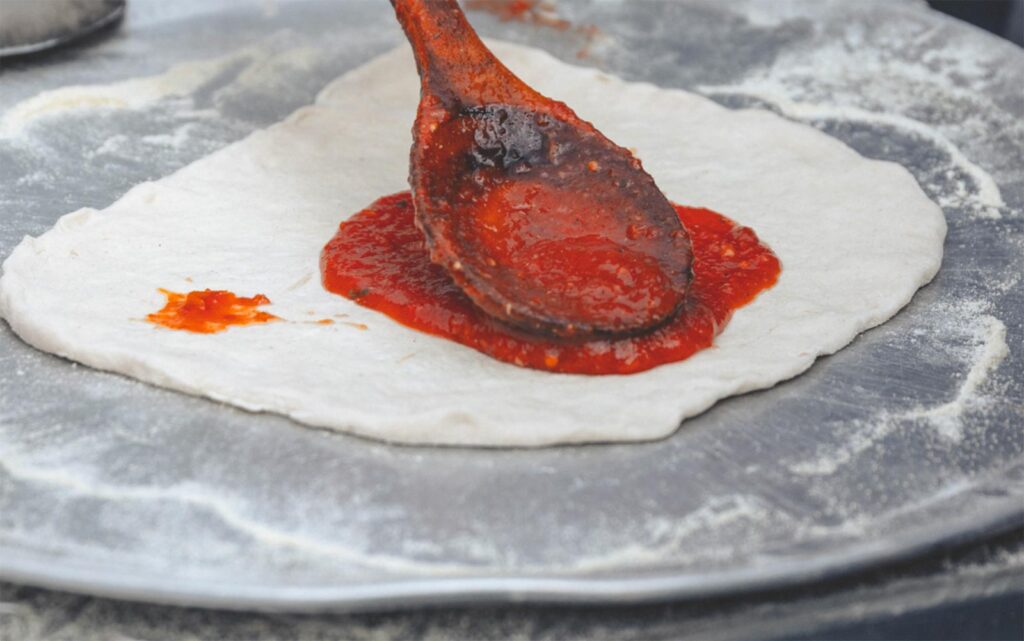
Stadle Made Calculator
This is a basic, straightforward pizza calculator. It lets you choose between the different styles of pizzas, whether they are baked on the oven floor or in a round or rectangular pan. The styles include Neapolitan, New York, Canotta, Tonda Romana, Genovese, Detroit, Sicilian, and Chicago.
It factors in the type of yeast and how many pizzas you want, at which size, and of course, desired hydration level. We like this one for its simplicity; it’s great for novice pizzaiolos.
Pizza Creator Calculator
We like that this one goes a little deeper and includes room temperature, which affects rising time and hydration. It includes six different pizza styles and focaccia. And allows for the other dough ingredients. Many put olive oil in their dough and sugar to kick-start the yeast, so those are great things to factor into the measurements.
My Pizza Corner Calculator
If Neapolitan pizza is all you care about and you just want to master that one classic style, then this is the best pizza calculator for you. It only focuses on Neapolitan-style pizza and includes all of the basic elements, including the room temperature when rising.
The Bread Code Pizza Calculator
Another fairly basic one is free to use. It’s simple and includes the ever-important hydration.
Pizza Devlay Calculator
You will feel like a mad scientist using this pizza calculator. It includes all kinds of numbers and percentages from different types of yeast, including cake yeast to pizza size shape and thickness to salt and bowl residue compensation.
If you are a perfectionist and want to get it right and love calculations, this is the best pizza calculator for you. It has everything, including deep-dish and stuffed.
Il Fornino Pizza Calculator
If you have moved from novice to more experienced pizzaiolo, you might enjoy this calculator that focuses on Neapolitan pizza dough using 00 flour with yeast only and the poolish method. The poolish method of pizza dough is a pre-ferment method that uses an equal amount of water and flour by weight.
The usual fermentation time for poolish is between 15-18 hours. The dough is 100% hydration and looks like a shaggy mess, but it makes a darn good pizza. But if that sound more complicated, you can opt for one of the simpler pizza calculators instead.
As you can see, pizza calculators focus on the dough since that is the most difficult part of measurements and hydration. As for sauce and toppings, that is a little easier to figure out since sauce and toppings are less exact than in baking.
And, of course, personal preference dictates if you make pizza with fewer toppings or if you like a loaded pizza with extra cheese. Each pizzaiolo is different, so there is no calculator for sauce, cheese, and toppings; there are just too many variables, so you will need to eyeball it.
And hey, if you grate too much cheese or have extra toppings, that is a great reason to make more pizza.
Give these pizza calculators a try when you are making your next pizza, and let us know which pizza calculator is best for your homemade pizza needs.

